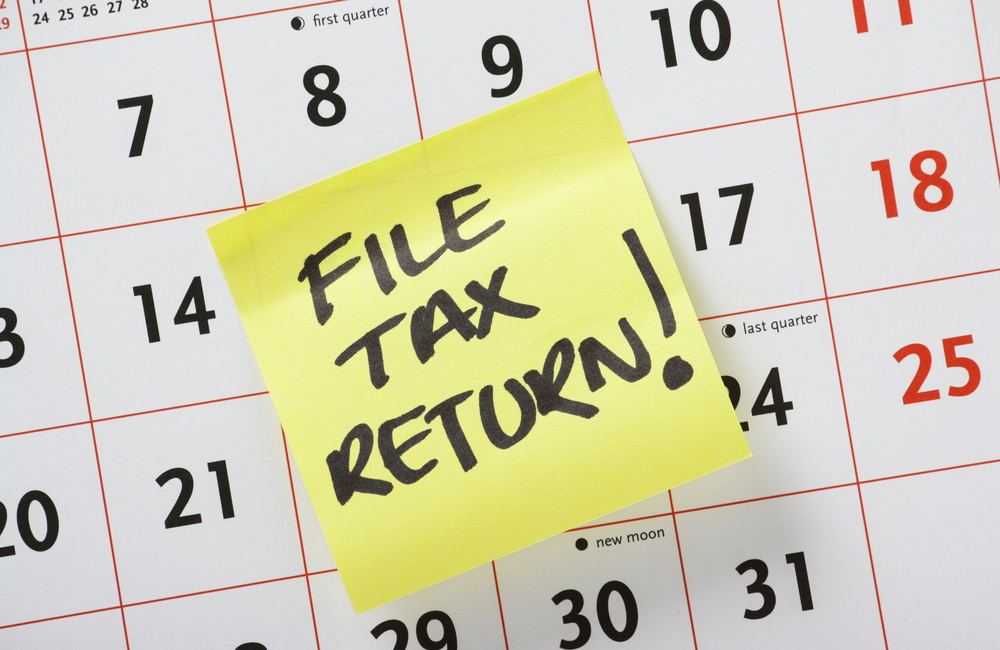Money Tips
Don’t get caught out: Three groups who may not know to submit a tax return

With the tax return deadline fast approaching, each year people may not know they need to submit a self-assessment to HMRC. Here are three common groups required to file by 31 January 2023.
An estimated 12 million returns for the 2021/22 tax year are due to be submitted to HMRC by the 31 January 2023 deadline.
But each year, thousands of people are chased by HMRC for unpaid tax, with many unaware they had to submit a tax return in the first place and pay an outstanding amount by the deadline.
Here are three common groups of people who are often caught out, according to NFU Mutual, to help you avoid being chased for tax and being hit with a financial penalty.
1) Certain child benefit recipients
Child benefit is paid to those with parental responsibility for children up to age 16, or 19 if they stay in approved full-time education or training. It’s £21.80 a week for the eldest child and £14.45 a week for each younger child.
In 2013, the ‘high income child benefit tax charge’ was introduced, affecting families where one parent earns more than £50,000 a year.

Wellness and wellbeing holidays: Travel insurance is essential for your peace of mind
Out of the pandemic lockdowns, there’s a greater emphasis on wellbeing and wellness, with
Sponsored by Post Office
However, according to NFU Mutual, thousands of families aren’t aware they need to pay it – a decade after it was implemented. Indeed statistics from HMRC revealed it made 43,995 compliance checks for child benefit tax in 2021/22.
So, if you or your partner earn £50,000 or more, you’re required to pay 1% income tax on the child benefit for each £100 of income above this. As an example, if you earn £55,000, you’d have to pay back 50% of the child benefit. The value of child benefit is eroded to nil once the taxable income of one of the adults exceeds £60,000.
Even if you normally pay tax through the PAYE system, you must submit a tax return to pay the high income child benefit tax. And you can become subject to the charge if you move in with someone claiming child benefit, even if they’re not your children. However, as it’s based on net income, if your pension savings take you to below £50,000 for instance, you won’t have to pay the tax
Sean McCann, chartered financial planner at NFU Mutual, said: “Families who haven’t received reminder letters shouldn’t assume the tax isn’t owed. The onus is on you to inform HMRC and pay any tax due.
“Be warned, you can be fined if your income is over £50,000 and you don’t pay the tax due. HMRC has collected nearly £20m in fines from people who failed to pay the High Income Child Benefit Tax Charge since its introduction in 2013.”
McCann added: “The £50,000 threshold has remained frozen since the tax was first introduced in 2013. With the self-assessment tax return deadline looming at the end of January it’s worth checking now if you need to pay it.”
2) Higher earners saving into a pension
This is a major area of confusion, which means many higher rate taxpayers could be missing out on hundreds or even thousands of pounds.
For basic rate taxpayers, for every £80 you put into your pension, your pension provider will get another £20 direct from HMRC so you get £100 deposited in total.
But if you’re a higher (40% income tax) or additional rate (45%) taxpayer, you’ll need to claim the extra 20% or 25% tax relief via a tax return.
McCann said: “Many higher and additional rate taxpayers do not do this, potentially missing out on thousands of pounds in unclaimed tax relief.
“If you haven’t claimed on previous years’ tax returns, you can go back up to four years and claim any higher rate relief due by contacting HMRC direct.”
You can claim pension tax relief here.
3) Those gifting shares or property
If you sold or gave away shares in the 2021/22 tax year, you need to declare and pay any tax due on gains made.
McCann said: “Many people don’t realise they can face a Capital Gains Tax bill when they gift shares or property – other than their main home – to anyone other than their spouse or civil partner.
“It’s worthwhile checking if you have any losses available to offset any potential bill.”
The annual exemption for Capital Gains Tax will be more than halved from £12,300 to £6,000 from April 2023.
You can see HMRC’s list of who needs to submit a tax return here.